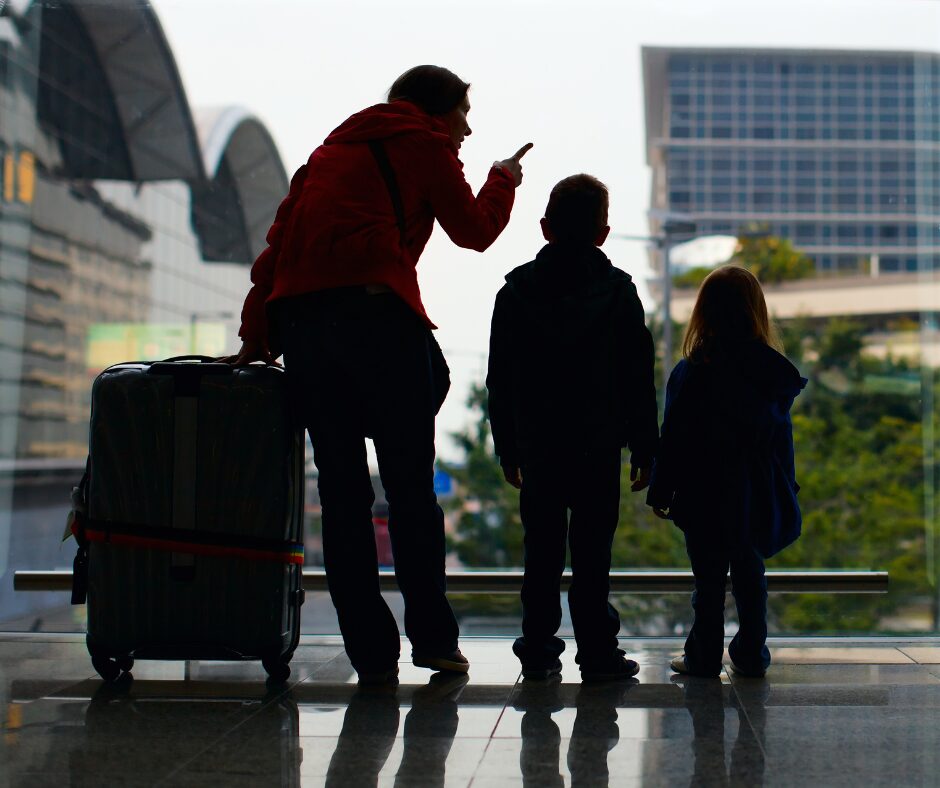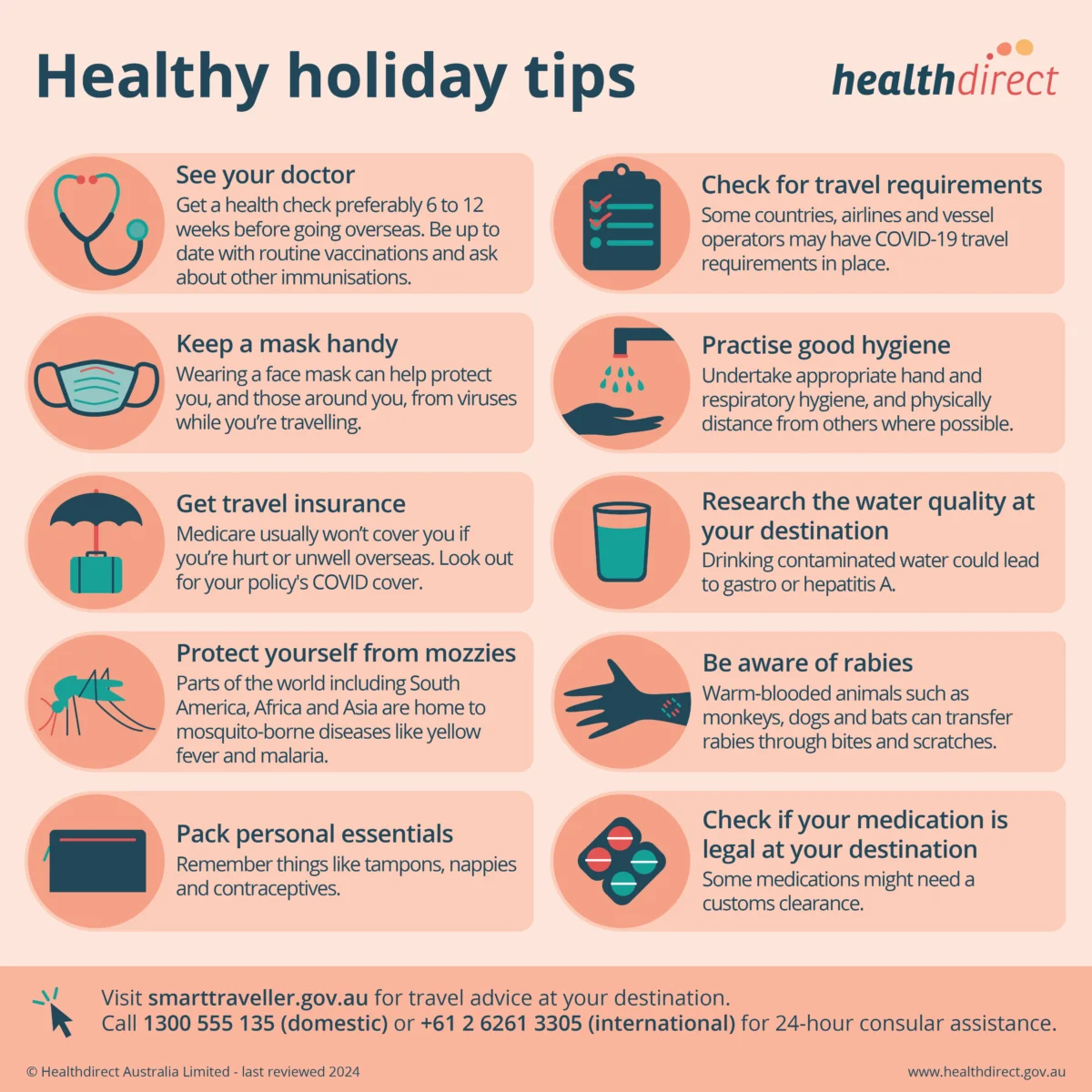A-Z of Public Health Topics
Travel health


Overseas travel – whether visiting family and friends, travelling for work or going on a holiday – can be an exciting and stressful time. Plan your travel to stay safe and avoid getting sick.
Going home for a visit?
Make sure to follow the same travel advice as if you are going someplace new. You might still need travel vaccines for the place you are visiting, even when it’s home. See your GP or a travel clinic for medical advice.

Staying safe while travelling
Before you leave:
Do your research
Use the Smartraveller website to research your destination, check local health and safety alerts, and keep up to date on the latest travel advice.
Get your vaccinations
See your GP or a travel clinic for medical advice and to find out what vaccinations you may need.
- Check what vaccines you might need depending on the country you are visiting.
- Check if you and your children are up to date on routine vaccines.
- Be aware of legal vaccination requirements for countries you may be visiting, such as yellow fever virus vaccine.
Other considerations
- Consider your medications. Bring enough supply, check that your medications are legal where you are going, check if you need a doctor letter, and plan ahead if you use injectable medications.
- In some countries and areas it may be difficult to access health-related supplies, such as feminine hygiene products, contraceptives, and first aid supplies. Consider bringing what you need with you.
- Consider travel insurance to make sure you are covered for medical emergencies.
- If you are going to locations with high altitude, consider discussing any needs with your GP.
While you travel:
Prevent infectious diseases
- Eating or drinking contaminated food and water can put you at risk of infections such as gastroenteritis, hepatitis A, cholera and typhoid.
- Practice good hygiene and wash your hands regularly.
- Where local tap water is not safe, only use bottled water to drink and brush your teeth.
- Don’t put ice in drinks, and only eat fruit you can peel and avoid uncooked food, including salads.
- Mosquitoes can transmit diseases such malaria, dengue fever, zika virus and yellow fever in different parts of the world. Ticks can also transmit diseases such as Lyme disease.
- Protect yourself from mosquito bites. See the WPHU mosquito-borne disease page (link) for more information.
- Take special care around animals and avoid patting cats, dogs or monkeys. Bites and scratches can easily become infected, and in many parts of the world animals may transmit deadly diseases such as rabies.
Other considerations
- Make sure to drink plenty of water and regularly exercise your leg muscles while on long-haul flights to help prevent deep vein thrombosis (DVT). Certain medical conditions, recent surgery, or pregnancy can increase your risk of DVT. See your doctor before travelling if this may apply to you.
- The climate may be hotter or colder than you are used to, so plan and dress accordingly. If you are planning to do more physical activity than you are used to, gradually build up your fitness before you head off on your adventure.
When you return:
If you become unwell while travelling home, tell the flight/vessel crew or a biosecurity officer and they will be able to provide you with advice and support.
Sometimes you might not get symptoms until after your return. See your doctor if you become unwell in the weeks after your return home, especially if you get any of the following symptoms:
- fever
- vomiting or diarrhoea
- swollen glands in your armpits or neck
- persistent coughing or difficulty breathing
- unexplained skin rashes or lesions.
Resources

Download this Healthy holiday tips for your own use.
